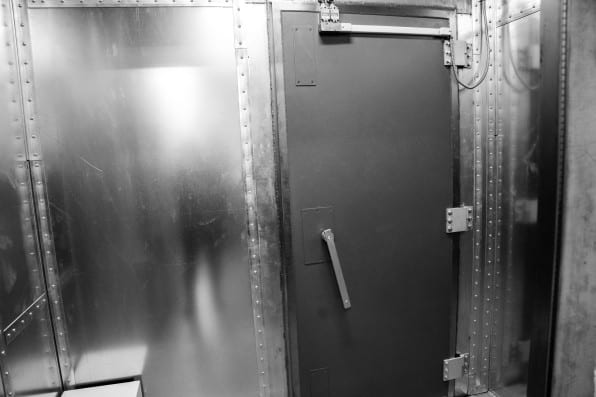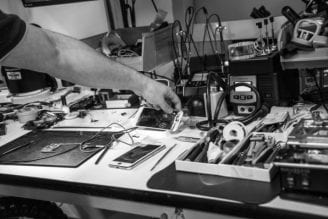New York law enforcement officials run a $ 10 million lab designed to unlock iPhones
Manhattan District Attorney Cy Vance Jr. built and oversees a $ 10 million high-tech forensic laboratory built specifically to unlock iPhones, according to a new Fast Company report .
The lab is equipped with ” amazing hardware ” and a team of technology experts, many of whom are ex-military. The facility itself has a radio frequency isolation chamber that is used to unlock criminals’ iPhones before they erase data remotely.
Vance’s team has thousands of iPhones at the facility in various cracking stages. There is a supercomputer that generates 26 million random passcodes per second , a robot capable of removing memory chips without using heat and specialized tools to repair damaged devices to make them functional again.
All iPhones are connected to computers that generate passcodes in an attempt to enter devices, and which sometimes require tens of thousands of combinations. Those who work at the facility, including director Steven Moran, also attempt to narrow down the possibilities by using birthdays, significant dates and other information that could be used for an iPhone passcode.
Proprietary workflow software tracks all iPhones at the facility, including their software and importance, in order to decide which iPhone to work on and which could be hacked using a newly discovered third-party solution.
Vance was one of Apple’s biggest critics and called on the government to introduce anti-cryptography legislation to make it easier for law enforcement officers to access the iPhones needed for criminal investigations. According to Vance, 82% of smartphones entering the unit are blocked and his cyber-crime laboratory can ” crack about half of them “.

Apple’s frequent software updates continually make it harder to penetrate iPhones making the process more complicated, which can make timely violation of an Apple device almost impossible.
Vance believes it is ” unfair ” that Apple and Google can prevent law enforcement officers from accessing smartphones . Vance says law enforcement has been given responsibility for ” protecting the public “, but Apple and Google offer limited access to information. Vance believes that there should be a ” balance ” between protecting user privacy and justice for crime victims.

Apple provides iPhone data from iCloud without getting into the device, but Vance claims that a serious criminal doesn’t have an iPhone backup. A user can also choose which information to store remotely and ” in many cases ” smartphones do not back up between the time a crime occurs and when a device is turned off.
Law enforcement officers may also obtain device metadata such as the time and place of a phone call from SIM cards or telephone operators, but Moran says this is the difference between being able to read a letter and being limited to only the place where the letter arrived.
Vance says he doesn’t ” complain ” about the cryptographic problem, but says his lab ” isn’t the answer ” because most of the United States can’t afford to do the job that the New York cyber lab does.
For more information on the New York High Tech Analysis Unit and facility, be sure to check out the Fast Company full report .


Recent Comments